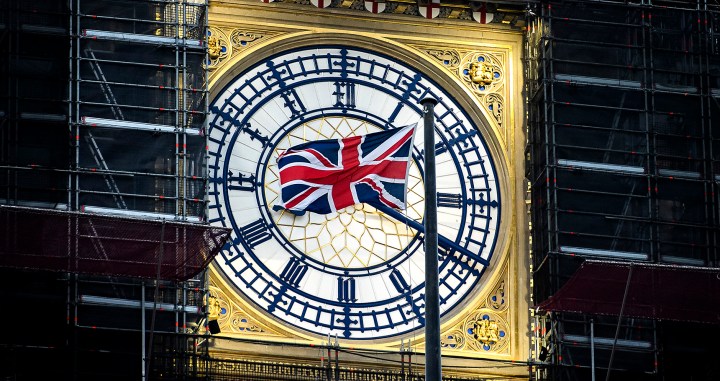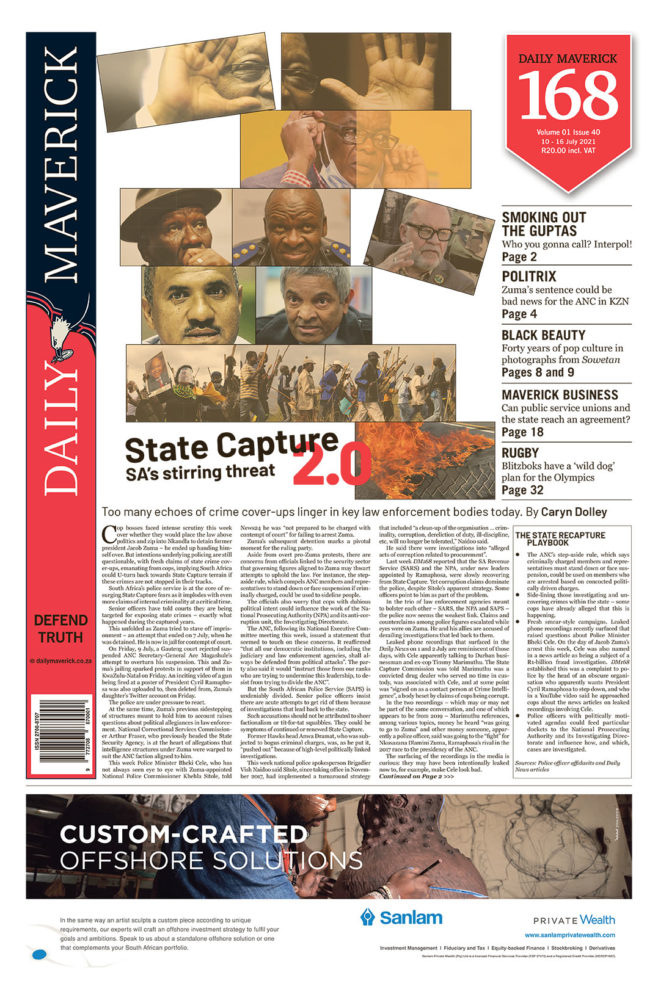BUSINESS MAVERICK 168 OP-ED
The future of Britain and Europe: Long, slow, difficult Brexit decoupling

The real effects of Brexit were always going to be structural and long term. Perhaps then six months after Britain officially left the common market, and conceivably more importantly five years after Britain voted to leave the European Union, early indications of trends are starting to emerge that give faint indications of what the future of Britain and Europe may look like.
First published in the Daily Maverick 168 weekly newspaper.
First, the dire predictions of the most vehemently pro-Remain economists have not materialised. There have not been queues of lorries in Kent, shelves are not empty and sterling has comfortably outperformed other similar benchmark currencies.
Nonetheless, the effects have been profound, sped up by the Covid-19 pandemic. Economically, socially and perhaps even psychologically, both the UK and Europe feel very different places already.
First, the disruption to the day-to-day reality of British businesses has been significant. The Financial Times reports that one-third of UK firms have seen a decline or loss of business, with 17% of firms that previously did business with Europe now halting it, possibly for good. Such shifts will clearly result in long-term decisions around investment and hiring, as it will take time to replace established markets with newly promised ones in far-flung places such as Australia. This could over the long run put a dampener on the UK’s ability to recover.
Similarly, the end of UK/EU labour migration will reshape the UK economy. Critical sectors of the economy such as food processing, packaging and agriculture were almost entirely dependent on cheap, flexible and hard-working European labour, particularly from Eastern Europe. Already UK meat processing firms are complaining of acute labour shortages as the migratory flows from Romania and Bulgaria look for opportunities elsewhere in the common market.
While this may result in wages and prices going up, it will also take time for a workforce hitherto inexperienced in the demands of 12-hour standing shifts in a meatpacking factory to adjust. The ramifications will, above all, have social elements.
It is ironic that perhaps the UK is only learning just how big a deal European migration was the moment it is confronted by life without it. As with all economic shifts, there will be trade-offs. Leaving the EU is not a zero-sum lose-lose. Nissan has promised a £1-billion investment in battery production in northwest England, adding it wants to “use Brexit as an opportunity”.
It is also possible to discern shifts that are more intangible, psychological, and perhaps far more important. People in the UK feel further away from Europe than ever. Especially with enforced quarantines, the Channel has never felt as wide. And likewise, many in Europe are replacing ennui and faint amusement at Britain with something more deliberate. To label it spite may be too far, but mere distrust is not enough.
Before June 2016 the UK, more particularly London, commanded an outsized place in European consciousness. The country had been a critical counterweight to the statist dirigiste instincts of France and Germany, while London was the biggest, most commercially minded, most culturally liberal city in Europe sucking in the brightest talents and minds from across the continent. The end of free movement curtailed that.
This week Italian newspaper La Stampa wrote a piece titled “Five reasons to be tired of London” while German weekly Der Spiegel said “London’s golden age is over”.
Rhetoric and identities shift slowly, at first imperceptibly and then – years later – completely dissimilar and detached historical discourses have formed. The sad and dangerous part is that when partners and friends move to being rivals and threats it is not a long way from becoming enemies.
Perhaps then it is best to sort out these differences on the playing field. Six months in, it is only fitting that it may well be England facing a European team this Sunday at Wembley, a match that will carry even more political significance than usual. DM168
Natale Labia writes on the economy and finance, and is a partner in Lionhead Capital Partners.
This story first appeared in our weekly Daily Maverick 168 newspaper which is available for free to Pick n Pay Smart Shoppers at these Pick n Pay stores.


















 Become an Insider
Become an Insider
Comments - Please login in order to comment.